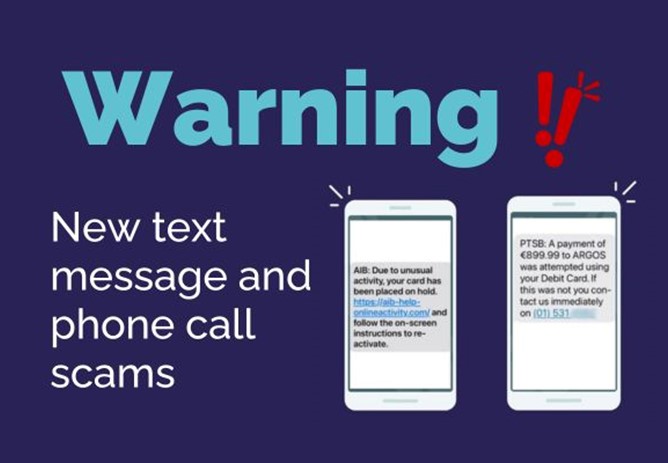16 April 2024
Warning: Scams climing to be from the CU
New text message and phone scams in circulation claiming to be from your bank or credit union
FraudSMART is advising consumers to be on alert for text message and phone scams currently in circulation claiming to be from your bank or credit union.
These are very convincing and sophisticated scams so please read the information below in order to protect your personal information and access to your bank or credit union account.
How does the scam happen?
- You may receive a phone call and/or text message which creates a sense of urgency in relation to a ‘suspicious payment’ from your account or other security issue.
- A text message may ask you to click on a link, call a number or even expect a call from their security team using a landline or private ID.
- If you do click the link you may find yourself on a fraudulent online banking login page that mimics the real bank or credit union login page.
- In some cases you may receive an authorisation code and be asked to input it on screen to ‘reactivate your account’ or ‘cancel a fraudulent payment’ - however this actually gives the fraudster access to your account.
- If you receive a fraudulent call the number may mimic the genuine number of the bank or credit union. If you find yourself on a suspicious call, the fraudster will try to get personal, financial and security information.
- The fraudster may imply that if you don’t act immediately, it will have negative consequences, for example, that money will be lost from your account.
- The fraudster may even advise you to delete your mobile banking or credit union app ask you not to log into your bank or credit union accounts for a period of time. In order to make you believe this instruction
Warning signs:
- A bank or credit union will never text/email/phone you asking for personal information.
- A bank or credit union will never send you a link on a text message.
- A bank or credit union will not ask you to delete your banking or credit union app or to avoid logging into banking online.
How do I recognise a genuine text message from my bank or credit union?
If you receive a genuine text message from your bank or credit union alerting you to fraudulent activity on your account you may be asked to reply with a basic response such as ‘Y’ or ‘N’ to confirm if a transaction is legitimate. A bank or credit union will never ask you to click on a link or for personal information.
What should you do if you receive a suspicious text message?
- Do not use phone numbers provided within the text of a text message. Contact your bank or credit union using the number on the back of your debit / credit card or your bank or credit unions main contact number.
- Do not reply to unsolicited text messages or provide personal or financial information.
- Do not click on a link or attachment from unsolicited emails or text messages.
- If someone is pressurising you on the phone to take urgent action, hang up and call the number on the bank or credit union of your debit / credit card or your bank or credit unions main contact number.
- Never give away personal information, bank or credit union debit card payment details, bank or credit union account details or security details such as your PIN or online password to anyone.
- Block the sender of a suspicious email or text message and delete the message.
- Contact your bank or credit union immediately, if you think you have responded to a scam text message or phone call.
Be Informed, Be Alert, Be Secure - Be FraudSMART






